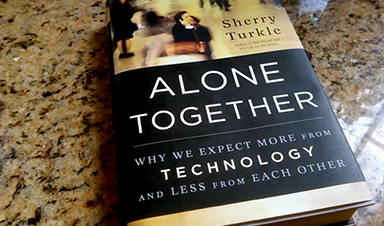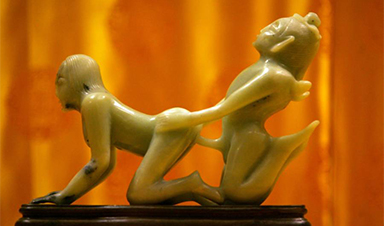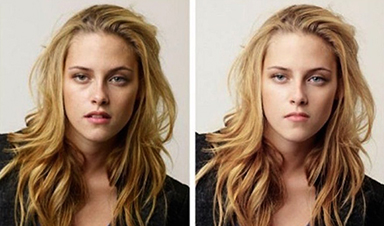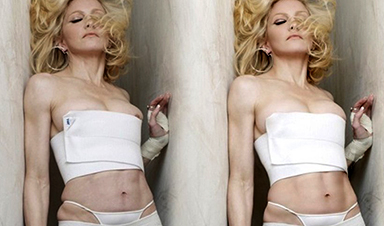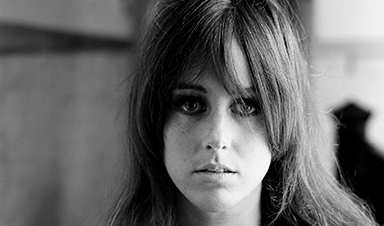From the article at Psychology Today:
Let’s start by getting our definitions straight: An Internet troll is someone who comes into a discussion and posts comments designed to upset or disrupt the conversation. Often, in fact, it seems like there is no real purpose behind their comments except to upset everyone else involved. Trolls will lie, exaggerate, and offend to get a response.
What kind of person would do this? Some Canadian researchers decided to find out.
Read the article by Jennifer Golbeck Ph.D at Psychology Today
Most Popular Posts in 2016
29 Pieces Of Erotic Art That Prove People Have Always Loved Sex
Image: A jade erotic art piece made during the Ming Dynasty (1368-1644). China. Sexuality has been a part of the human experience since our inception as a species. Since the beginning of civilization, humans [...]
Message from Amanda!
I've been redesigning this website, installing a beautiful new WordPress theme. The site is much wider for those of you with larger monitors while also being fluid and responsive so its also great on all [...]
The 45 most seductive women of all time
From the article at buro24/7.com.au: "What makes a woman seductive? If you ask Leonardo da Vinci, it's the mysterious, beguiling smile of a certain Mona Lisa. For Botticelli, it was tendrils of golden locks swirling [...]
Penis size interacts with body shape and height to influence male attractiveness
Before clothing, the nonretractable human penis would have been conspicuous to potential mates. This observation has generated suggestions that human penis size partly evolved because of female choice. Australian researchers have found that penis size [...]
From article: Forget romance. Some women just want sex
From the article by Vanessa de Largie at The Courier Mail We’ve known for a while now that clean-cut Richie Strahan is Australia’s newest Bachelor, and it has just been announced that TV news anchor Georgia [...]
A rising trend – Females assert themselves in sex-selfies
The word ‘selfie’ was coined in Australia. The first use of the word selfie in any paper or electronic medium appeared in an Australian internet forum on 13 September 2002 in Karl Kruszelnicki's 'Dr Karl [...]
Recent Comments
‘This blog is all about quality.. So refreshing and interesting. You have a superb web presence.’‘Just wanted to say that you have a wonderful blog. Love all the pictures. I also love the pictures of you… Love your camera work also. Thanks, keep up the good work. I love to visit often. Have a great day and a wonderful night.’
‘…just wanted to let you know your blog is amazing! Well done!’
‘…congratulations —your photographs are stunning in composition, lighting, and of course, subject matter. Your posts are always a highlight.’
‘As always, your posts project amazing beauty! Thanks!’
‘Greetings! Your blog is a work of art…’
‘…photo selections that are by turns elegant, intriguing, sensual, erotic, and plain hot. Plus continuing to show that not all selfies are created equal, even in this universally photographic age.’
Quote of the Day
Quote of the Day – February 4 2021
“The behavior of a human being in sexual matters is often a prototype for the whole of his other modes of reaction in life.” Sigmund Freud, Sexuality and the Psychology of Love [...]
Quote of the Day – February 3 2021
“In this land some of us fuck more than we die but most of us die better than we fuck” Charles Bukowski, Love Is a Dog from Hell An evolutionary arms race? Biology fascinates me [...]
Quote of the Day – February 2 2021
Whether he is an artist or not, the photographer is a joyous sensualist, for the simple reason that the eye traffics in feelings, not in thoughts. Walker Evans Quotes for Lovers who talk [...]
Quote of the Day – February 1 2021
"Blake said that the body was the soul’s prison unless the five senses are fully developed and open. He considered the senses the ‘windows of the soul.’ When sex involves all the senses intensely, it [...]
Quote of the Day – January 31 2021
“Of all sexual aberrations, perhaps the most peculiar is chastity.” Rimy de Gourmont Thoughts for Lovers! History of Erotica
Quote of the Day – September 11 2019
“The living model, the naked body of a woman, is the privileged seat of feeling, but also of questioning… The model must mark you, awaken in you an emotion which you seek in turn to [...]
Recent Posts
Sharing the viewfinder
"The “gaze” is a term that describes how viewers engage with visual media. Originating in film theory and criticism in the 1970s, the gaze refers to how we look at visual representations. These include advertisements, [...]
Werner Herzog – Lo And Behold: Reveries of the Connected World – Official Trailer
Legendary master filmmaker Werner Herzog (Grizzly Man, Cave of Forgotten Dreams) examines the past, present and constantly evolving future of the Internet in Lo and Behold: Reveries of the [...]
18 Photos Of Celebrities Before And After Photoshop
Celebrities already have an arsenal of image improvement tricks, like make-up, the best personal trainers, plastic surgery, and the list goes on. That list also includes tweaks and touch-ups using Photoshop software. Read more [...]
The 45 most seductive women of all time
From the article at buro24/7.com.au: "What makes a woman seductive? If you ask Leonardo da Vinci, it's the mysterious, beguiling smile of a certain Mona Lisa. For Botticelli, it was tendrils of golden locks swirling [...]
The great art cover-up: Renaissance nudity still has power to shock
From the article by Jonathon Jones in The Guardian: Sistine Chapel buttocks are veiled, while Leonardo’s Leda was so saucy she was destroyed. But prudish censorship only confirms the pulling power of art. You never [...]
Article: If famous works of romantic fiction were written while dating in 2016
From the article from The Daily Life by Clem Bastow: "Last week, after another no-show Tinder date, I poured my heart out in a Facebook status (diaries are for chumps): despite my enduring optimism about meeting [...]
Fomosexuality? Interesting phenomenon…
From the article by Dr Nikki Goldstein at news.com.au "Our lives have been overtaken by the concept of FOMO, and this ‘fear of missing out’ on anything is pushing us to quick fixes and further [...]
Article from The Book of Life: Sexual Non-Liberation
From the Book of Life: We are repeatedly given messages that we live in sexually enlightened times, that we belong to a liberated age. And therefore the implication is that we ought by now to [...]
How Jefferson Airplane’s Grace Slick Wrote ‘White Rabbit’
When Grace Slick wrote “White Rabbit” in late 1965, she never imagined the song would pave the way for psychedelic rock and inspire several generations of lead female rock singers, including Pink, who covers it [...]
